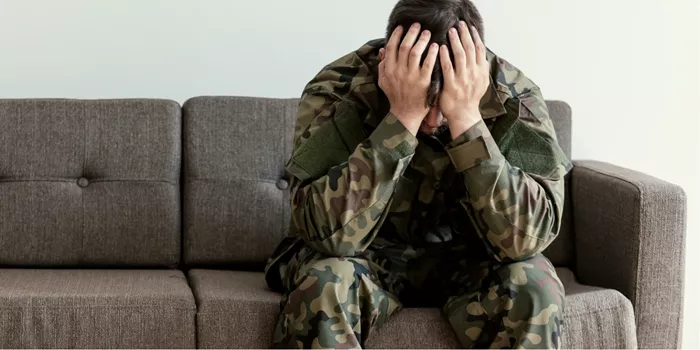A new study highlights the ongoing mental health challenges faced by UK military personnel, with rising rates of post-traumatic stress disorder (PTSD), depression, and anxiety among those who served in Iraq and Afghanistan. According to the study conducted by King’s College London, nearly 10% of veterans now struggle with PTSD, signaling the enduring psychological toll of war on British service members.
The research, funded by the UK’s Office for Veterans’ Affairs (OVA), involved the participation of over 4,100 UK military personnel who served during the conflicts in Afghanistan and Iraq. This 20-year study paints a concerning picture of mental health among veterans, showing a steady increase in conditions like PTSD while some challenges, like alcohol misuse, have remained relatively stable.
Mental Health Consequences of War
Between 2001 and 2014, over 280,000 UK service members were deployed to Iraq or Afghanistan. The British military’s full withdrawal from Afghanistan in 2021 marked the end of a long chapter in the nation’s military history, but for many veterans, the personal battle with mental health continues. The study reveals that while most veterans do not report mental health issues, nearly one in three suffer from conditions like PTSD, anxiety, or depression.
PTSD is particularly prevalent, affecting 9.4% of veterans, up from 6.2% in the last wave of the study conducted from 2014-2016. Ex-servicemen are more vulnerable than those still in active duty, with a PTSD rate of 10.5% compared to 7.4% among current military personnel.
Unique Challenges for Veterans
Veterans who served in combat roles are more likely to experience PTSD than those who held support positions. Additionally, veterans who were deployed to Iraq or Afghanistan are at higher risk compared to those who were not deployed to these conflict zones. As many veterans transition to civilian life, the mental health support they need becomes critical.
“PTSD is a life-changing condition that can be extremely difficult to treat,” says Marie-Louise Sharp, one of the study’s lead researchers at King’s Centre for Military Health Research. She notes that complex PTSD, a chronic form of the disorder marked by emotional regulation difficulties, is a significant issue for many veterans.
The Need for More Mental Health Resources
The findings call for greater investment in mental health services tailored to veterans, particularly those with complex mental health needs. “We need to ensure that our programs are equipped to manage complex conditions such as PTSD and other mental health disorders,” says Dr. Simon Wessely, co-author of the study and professor of psychiatry at King’s College London.
The study also underscores the challenges of effective mental health screening. While more veterans may now recognize the symptoms of mental health issues, they may not always seek help. Researchers also highlighted the impact of the COVID-19 pandemic, which may have influenced the findings, as the latest wave of research was conducted during 2022 and 2023.
“The pandemic could have added stressors to the veterans’ mental health,” Sharp explained. “But it’s clear that long-term support and continuous research are crucial for the future of mental health services.”
Looking Ahead
The study’s findings serve as a stark reminder of the need to continue supporting the mental health of military personnel and veterans. As Dr. Wessely notes, “Acknowledging the lasting mental health impacts of these conflicts can guide us in providing better care for both current and future generations of service members.”
Veterans’ mental health requires sustained attention, and the study emphasizes the importance of helping veterans manage their transition to civilian life while addressing feelings of isolation and additional responsibilities that often follow their military service.
By understanding the complex mental health needs of these veterans, the UK can better serve those who have sacrificed so much, ensuring they receive the care and support they need for a healthier, brighter future.
Related articles:
PTSD: Causes, Symptoms, and Treatment
Effective Therapies for PTSD: A Comprehensive Guide


